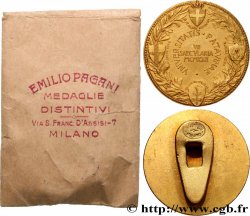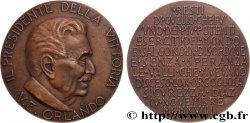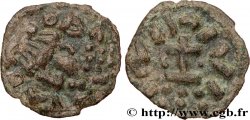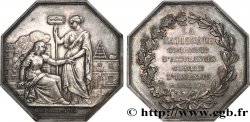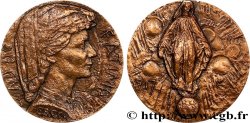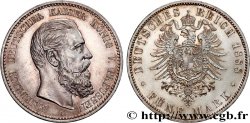Live auction - fme_444096 - ITALY - VICTOR EMMANUEL III Médaille pour Giuseppe Garibaldi
You must signin and be an approved bidder to bid, LOGIN TO BID. Accounts are subject to approval and the approval process takes place within 48 hours. Do not wait until the day a sale closes to register. Clicking on "BID" constitutes acceptance of the terms of use of cgb.fr private live auctions.
Bids must be placed in whole Euro amounts only. The sale will start closing at the time stated on the item description; any bids received at the site after the closing time will not be executed. Transmission times may vary and bids could be rejected if you wait until the last second. For further information check the Live auction FAQ
All winning bids are subject to a 18% buyer’s fee.
All winning bids are subject to a 18% buyer’s fee.
| Estimate : | 250 € |
| Price : | no bid |
| Maximum bid : | no bid |
| End of the sale : | 31 October 2017 17:33:04 |
Type : Médaille pour Giuseppe Garibaldi
Date: 1860
Mint name / Town : Italie
Metal : gilt bronze
Diameter : 50,2 mm
Orientation dies : 11 h.
Engraver MASSONNET Éditeur
Weight : 61,4 g.
Edge : lisse
Coments on the condition:
Très belle médaille dorée avec un très bel aspect général. Belle patine avec une tache sombre sur le front au droit. Vendue dans son coffret d’origine
Predigree :
Cette médaille provient de la collection Isaac Tual (né en 1884)
Obverse
Obverse legend : GIUSEPPE GARIBALDI - NATO A NIZZA NEL 1807.
Obverse description : Portrait de profil tourné vers la gauche.
Reverse
Reverse legend : GUERRA PER L’INDIPENDENZA ITALIANA // SBARCO A MARSSALA / IL / II DI MAGGIO / PRESA DI PALERMO / IL DI 27 / CAPI DI CORPI / LA MASA. CARINI. STOCCO / CAIROLI. NINO BIXIO. / ORSINI. ANFOSSI.
Reverse description : Légende circulaire et en 9 lignes dans une couronne mixte de chêne et de lauriers.
Commentary
Giuseppe Garibaldi, né Joseph Marie Garibaldi le 4 juillet 1807 à Nice (Empire français) et mort à Caprera (royaume d’Italie) le 2 juin 1882, est un général, homme politique et patriote italien. Il est considéré, avec Camillo Cavour, Victor-Emmanuel II et Giuseppe Mazzini, comme l’un des « pères de la patrie » italienne..







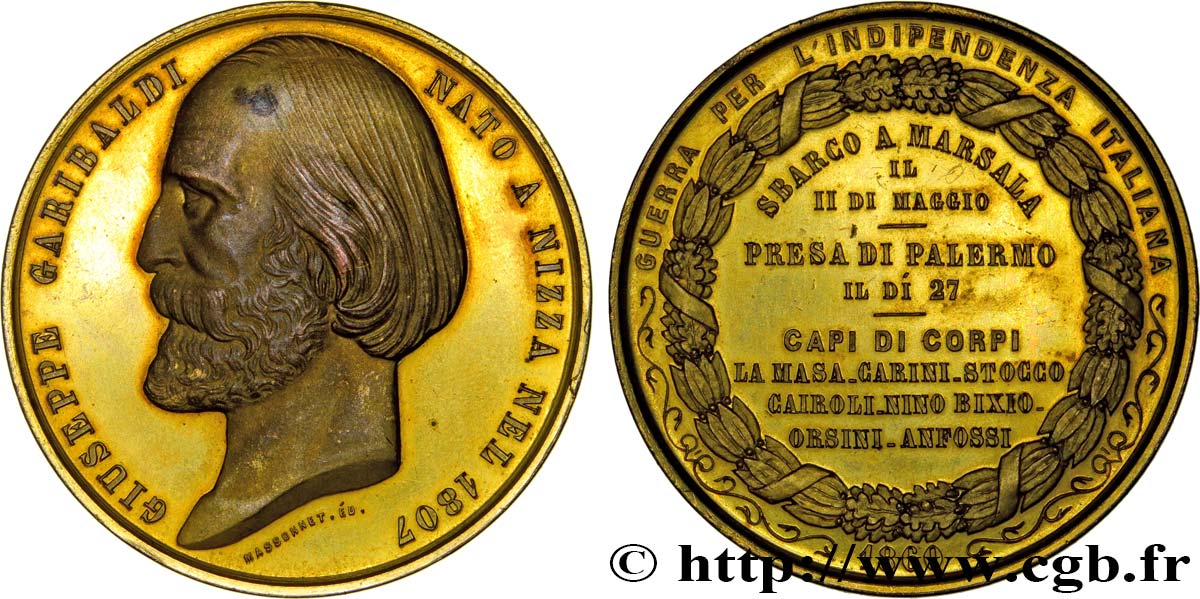
 Report a mistake
Report a mistake Print the page
Print the page Share my selection
Share my selection Ask a question
Ask a question Consign / sell
Consign / sell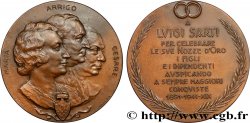
 Full data
Full data
